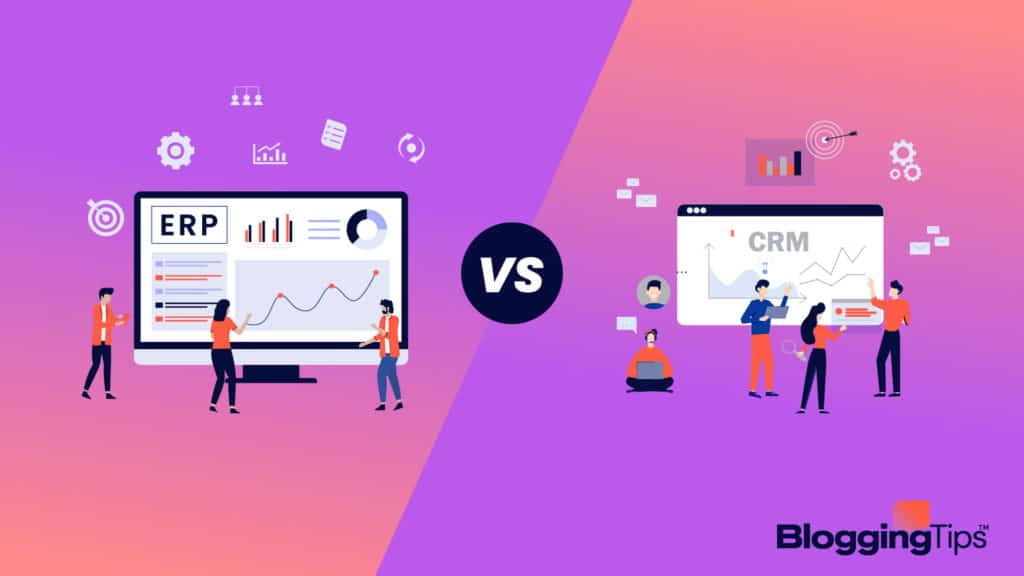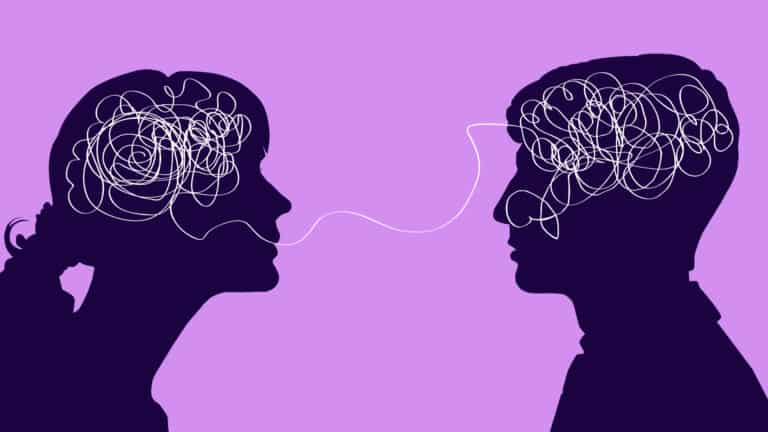Are you trying to decide which software system is best for your business?
It can be tough to decide between an ERP system and a CRM system.
In this blog post, we will discuss the key differences between these two systems so that you can make an informed decision.
Keep reading to learn more!
What Are ERP Systems?
ERP systems are computer software that helps businesses manage and automate their daily operations.
They can be used for inventory management, manage customer data, and generate financial reports.
ERP systems often integrate with other business software, such as CRM and accounting systems.
This gives businesses a complete view of their customers, sales, and finances.
ERP systems can be complex and expensive, but they can also offer significant benefits to businesses.
For example, they can help businesses improve their efficiency, accuracy, and decision-making.
The key is to find an ERP system that meets the specific needs of your business.
With the right system in place, you can streamline your operations and take your business to the next level.
What Are CRM Systems?
CRM software is an application that helps businesses manage customer data.
The system centralizes customer information, including contact information, purchase history, and preferences.
This data can be used to develop marketing strategies, improve customer service, and increase sales.
In addition, CRM systems often include features such as task management and email integration.
By using a CRM system, businesses can gain a better understanding of their customers and build long-term relationships.
What Are Standalone CRM Systems?
A CRM system helps businesses manage customer data.
It can track interactions, store customer information, and generate reports.
CRM systems can be deployed as software-as-a-service (SaaS), on-premises, or via a hybrid model.
A standalone CRM system is usually deployed on-premises or as a SaaS solution.
Most standalone CRM solutions are offered as a subscription service, with prices based on the number of users or the amount of storage required.
Some standalone CRM systems offer a free trial period, while others require a monthly or annual subscription fee.
Standalone CRM solutions typically offer more features and functionality than web-based CRM solutions.
However, they can be more expensive to implement and maintain.
When choosing a CRM system, it is important to consider the needs of your business and compare the features and pricing of different solutions.
Benefits Of ERP
Enterprise resource planning (ERP) software provides organizations with a number of benefits.
ERP centralized data and processes that were previously scattered across various departments and locations.
This gives organizations a 360-degree view of their business processes, which leads to better decision-making.
ERP systems also automate many manual processes, which leads to increased efficiency and accuracy.
In addition, ERP systems provide real-time insights into business operations, which helps organizations to identify and resolve issues in a timely manner.
Finally, ERP systems are highly customizable, which means that they can be tailored to the specific needs of any organization.
Benefits Of CRM
CRM, or customer relationship management, is a system that helps businesses manage their interactions with customers and potential customers.
By tracking customer data and purchasing history, businesses can gain insights into customer behavior and preferences.
This information can then be used to improve marketing and sales strategies, as well as to provide better customer service.
In addition, CRM systems can automate many of the tasks associated with managing customer relationships, such as creating and tracking customer records, sending marketing emails, and scheduling appointments.
As a result, businesses that use CRM can save time and money while improving their relationships with customers.
Cons Of ERP
There are several cons of ERP that organizations should be aware of before implementing an ERP system.
One con is the high cost of ERP systems.
Not only do organizations have to pay for the software, but they also need to invest in hardware, licenses, and consulting fees.
In addition, ERP systems can be complex and difficult to customize, which can lead to issues with data accuracy and user adoption.
Another con is that ERP systems are inflexible, meaning that they cannot be easily adjusted to meet changing business needs.
As a result, organizations may find themselves stuck with an outdated system that does not meet their current needs.
Finally, ERP systems can be disruptive to business operations, particularly during the implementation process.
For these reasons, it is important for organizations to carefully weigh the pros and cons of ERP before making a decision.
Cons Of CRM
CRM, or customer relationship management, is a system for managing customer data and interactions.
CRM systems can be used to track leads, customers, and sales.
They can also be used to store contact information, monitor customer activity, and automate marketing tasks.
While CRM systems offer many benefits, there are also some potential drawbacks to consider.
One downside of CRM systems is that they can be complex and difficult to use.
If a CRM system is not properly configured, it can be very difficult for employees to access the data they need.
Additionally, CRM systems can be expensive to implement and maintain.
Another potential downside is that CRM systems can lead to information overload.
If too much data is entered into a CRM system, it can become difficult to find the most important information.
Finally, CRM systems can create a false sense of security.
If a company relies too heavily on a CRM system, it may become less focused on developing relationships with individual customers.
While CRM systems offer many advantages, it is important to weigh the pros and cons before deciding if a CRM system is right for your business.
Types Of ERP Applications
Enterprise Resource Planning (ERP) is a type of software application that helps businesses to manage and streamline their operations.
The three most common types of ERP applications are financial, human resources, and manufacturing.
Financial ERP applications help businesses to track their finances and make better decisions about spending.
Human resources ERP applications help businesses to manage employee records and payroll.
Manufacturing ERP applications help businesses to get a better overview of their production process and make better decisions about inventory management.
All three types of ERP applications share a common goal: to help businesses run more efficiently and effectively.
By choosing the right type of ERP application for their needs, businesses can gain a competitive edge in today’s marketplace.
Types Of CRM Applications
CRM applications manage customer data to help businesses build better relationships with their customers.
There are four main types of CRM applications: lead management, sales force automation, customer service, and support, and marketing automation.
Lead management applications help businesses track and manage leads throughout the sales cycle.
Sales force automation applications help sales teams automate their sales processes and track their progress.
Customer service and support applications help businesses provide better customer service and support.
Marketing automation applications help businesses automate their marketing processes and track their progress.
All of these CRM applications are essential for businesses to build better relationships with their customers.
Which Is Best For Sales Process: ERP Or CRM

In the business world, there are many different tools that can be used to help improve sales processes.
Two of the most popular options are enterprise resource planning (ERP) and customer relationship management (CRM) systems.
Both of these tools can offer a number of benefits, but it can be difficult to decide which one is right for your business.
Here is a closer look at ERP and CRM systems to help you make the best decision for your business.
ERP systems are typically used by larger businesses because they offer a comprehensive solution for managing all aspects of the business, including finance, manufacturing, and human resources.
CRM systems, on the other hand, are designed specifically for managing customer relationships.
As such, they typically offer more features related to customer management, such as contact lists and customer segmentation.
In general, ERP systems are more expensive than CRM systems and require more complex implementation.
However, they can offer a number of advantages, such as improved efficiency and greater visibility into all aspects of the business.
CRM systems are usually a better option for smaller businesses because they are less expensive and easier to implement.
Additionally, CRM systems offer a number of features that can be tailored to the specific needs of your business.
For example, CRM systems allow you to track customer interactions in order to better understand their needs and improve customer service.
Ultimately, the best option for your business will depend on your specific needs and budget.
However, both ERP and CRM systems can offer a number of benefits that can help to improve your sales processes.
ERP Vs CRM: Understanding The Key Differences
ERP and CRM software are two important acronyms in business that are sometimes confused.
While they both have to do with software that businesses use, they actually serve very different purposes.
ERP, or enterprise resource planning, is a system that helps businesses manage their core processes, such as accounting, finance, and inventory management.
CRM, on the other hand, stands for customer relationship management.
As the name suggests, CRM software is designed to help businesses manage their relationships with their customers.
This includes tasks such as managing customer data, tracking sales and marketing activities, and providing customer support.
While ERP and CRM systems can both be beneficial to businesses, it’s important to understand the key differences between them in order to choose the right solution for your business.
Now you can know which is better for you, ERP or CRM.
Wrapping Up
ERP and CRM are two of the most important pieces of software for businesses.
However, they have different functions and serve different purposes.
It’s important to understand the key differences between them so that you can choose the right system for your company.
Have you decided which system is best for you?
If not, our team can help you make the decision.
We offer a free consultation to help business owners like you find the perfect software solution for their needs.
Let us know in the comments about your thoughts.
Contact us today to get started!





